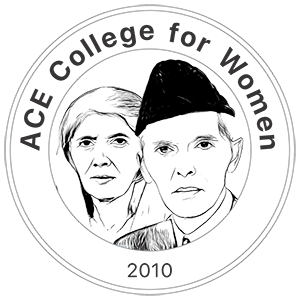Antiviral Effects of Tea Extracts on Viral Extension of Avian Influenza A
Influenza is passed on by breathing of contagious droplets and droplet nuclei by undeviating contact and possibly by indirect contact with self-inoculation onto the upper respiratory tract1. In 1997, disclosure to live poultry before the onset of illness in one week was linked with disease in humans with influenza A (H5N1) virus2.
Free-grazing ducks are known for the influenza A virus reservoirs and can spread viruses through frequent movements in habitats and may be significant in influenza A virus transmissions3. Recently, influenza A virus subtypes H4N6 and H3N8 were isolated from free-grazing ducks with clinical signs of depression and ocular discharge in Thailand.
Tea leaves extract consists of a group of relatively small polyphenols, mainly consisting of catechins, flavonols, proanthocyanidins and theaflavins. Tea catechins have been found to having antiviral property. The EGCG (epigallocatechin-3-gallate) is the major catechin found in tea extract, which accounts for approximately 50% of the total catechins. This compound has verifiable benefits including antitumor, anti-oxidative and antiviral effects4.
The EGCG is multi-potent in terms of its broad-spectrum antiviral efficacy in vitro with inhibitory effects on human immunodeficiency virus (HIV), herpes simplex virus (HSV), hepatitis C virus (HCV) and influenza virus5. A new experiment was performed by the researchers in which they compared the antiviral activities of green tea and black tea extracts on viral propagation in embryonated chicken eggs6.
The virus yields were determined by hem-agglutination test. The virus yields were obtained only in control, while no virus was detected in any dilution of tea extract treatments. In addition, the effect of tea extracts on adsorption of influenza A virus to chicken erythrocytes investigated by hem-agglutination inhibition test. Interestingly, as expected both tea extracts inhibited viral binding to the cells and green tea extract inhibited viral binding better than dried tea leaves extract7.
These data suggested that tea extracts affect the early step (viral adsorption) of influenza virus infection. In addition, the total phenolic contents in tea extracts were also examined. The green tea and black tea extracts specifically targeted the viral cell entry into reticuloendothelial cells. Green tea and black tea extracts blocked virus penetration into cells by physically damaging the viral integrity. These findings may explain the general antiviral mechanism of tea extract against infections with influenza virus and possibly other enveloped viruses.
REFERENCES
- Weinstein, R.A., C.B. Bridges, M.J. Kuehnert and C.B. Hall, 2003. Transmission of influenza: Implications for control in health care settings. Clin. Infect. Dis., 37: 1094-1101.
- Mounts, A.W., H. Kwong, H.S. Izurieta, Y.Y. Ho and T.K. Au et al., 1999. Case-control study of risk factors for avian influenza A (H5N1) disease, Hong Kong, 1997. J. Infect. Dis., 180: 505-508.
- Gilbert, M., P. Chaitaweesub, T. Parakamawongsa, S. Premashthira and T. Tiensin et al., 2006. Free-grazing ducks and highly pathogenic avian influenza, Thailand. Emerg. Infect. Dis., 12: 227-234.
- Suganuma, M., A. Saha and H. Fujiki, 2011. New cancer treatment strategy using combination of green tea catechins and anticancer drugs. Cancer Sci., 102: 317-323.
- Yang, C.S., P. Maliakal and X. Meng, 2002. Inhibition of carcinogenesis by tea. Ann. Rev. Pharmacol. Toxicol., 42: 25-54.
- Song, J.M., K.H. Lee and B.L. Seong, 2005. Antiviral effect of catechins in green tea on influenza virus. Antiviral Res., 68: 66-74.
- Taechowisan, T., K. Dumpin and W.S. Phutdhawong, 2018. Isolation of avian influenza A (H5N2) from free-grazing ducks in thailand and antiviral effects of tea extracts on viral propagation. Asian J. Poult. Sci., 12: 7-13.
How to Cite this paper?
APA-7 Style
Taechowisan,
T. (2019). Antiviral Effects of Tea Extracts on Viral Extension of Avian Influenza A. Asian Journal of Emerging Research, 1(1), 23-24. https://doi.org/10.3923/AJERPK.2019.23.24
ACS Style
Taechowisan,
T. Antiviral Effects of Tea Extracts on Viral Extension of Avian Influenza A. Asian J. Emerg. Res 2019, 1, 23-24. https://doi.org/10.3923/AJERPK.2019.23.24
AMA Style
Taechowisan
T. Antiviral Effects of Tea Extracts on Viral Extension of Avian Influenza A. Asian Journal of Emerging Research. 2019; 1(1): 23-24. https://doi.org/10.3923/AJERPK.2019.23.24
Chicago/Turabian Style
Taechowisan, Thongchai.
2019. "Antiviral Effects of Tea Extracts on Viral Extension of Avian Influenza A" Asian Journal of Emerging Research 1, no. 1: 23-24. https://doi.org/10.3923/AJERPK.2019.23.24

This work is licensed under a Creative Commons Attribution 4.0 International License.



